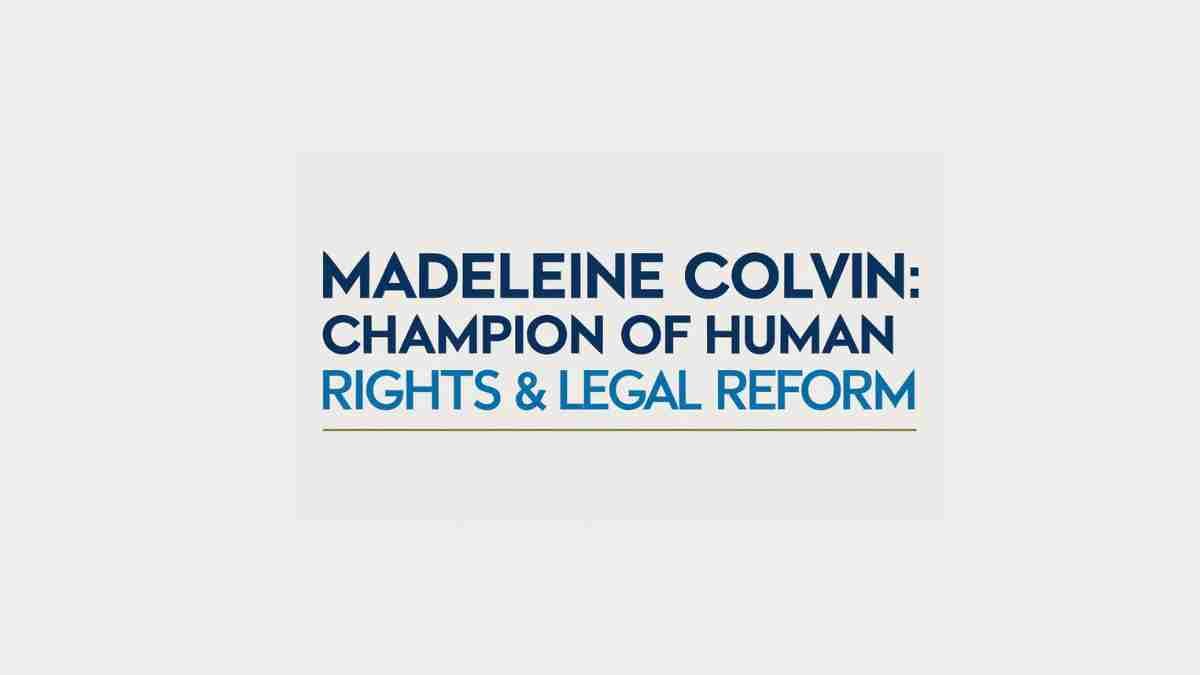Madeleine Colvin: Champion of Human Rights and Legal Reform

Madeleine Colvin is a name that carries weight in the fields of human rights law, legal reform, and policy-making in the United Kingdom. With a career spanning decades, she has played a pivotal role in shaping the legal landscape, particularly during the crucial years when the UK Human Rights Act was conceived, debated, and implemented. Colvin is known not only as a barrister and legal consultant but also as a thought leader who has influenced non-governmental organisations, judicial systems, and academic discussions.
Early Life and Academic Background
Madeleine Colvin was born in March 1949 and is recorded as having South African nationality during her early years. Although specific details of her childhood remain relatively private, her later work reflects an upbringing and education that instilled in her a strong sense of justice and commitment to social equality. Her academic path prepared her for the demanding world of legal practice, equipping her with the analytical, ethical, and intellectual foundations needed to excel in human rights law.
Entry into Legal Practice
Colvin’s professional journey began in earnest when she became a practising barrister. Over time, she gravitated towards human rights and civil liberties, areas that demand both intellectual rigor and moral conviction. As a barrister, she quickly established herself as someone who could navigate the complexities of legal argument while keeping the broader principle of justice at the forefront. Her expertise led her to move beyond casework and into more strategic roles, where she could influence law reform and policy development.
Work with Civil Liberties Organisations
A defining period of Madeleine Colvin’s career came through her involvement with two of the UK’s most respected civil liberties organisations: JUSTICE and Liberty.
JUSTICE: As the Legal Policy Director at JUSTICE, Colvin contributed directly to shaping strategies that influenced public policy and legislative frameworks. She worked extensively during the years surrounding the passage of the Human Rights Act 1998, helping to ensure the law embedded key principles of fairness and accountability.
Liberty: As a member of the council of Liberty, she brought her legal expertise into an organisation dedicated to defending civil liberties and promoting human rights in the UK. Her contributions supported Liberty’s longstanding mission to hold governments accountable and defend individual freedoms.
Her dual engagement with these organisations demonstrates her ability to balance practical law reform with broader advocacy for rights and freedoms.
Publications and Thought Leadership
Madeleine Colvin has also distinguished herself as an editor and author, contributing significantly to human rights literature.
“Human Rights in the Investigation and Prosecution of Crime” (2009): Co-edited with Jonathan Cooper, this work explores how human rights standards must shape every stage of the criminal justice process. It has become a key reference point for lawyers, academics, and policy-makers alike.
“Developing Key Privacy Rights” (2002): Published as part of the JUSTICE series, this text demonstrates Colvin’s foresight in identifying privacy as a cornerstone of human rights, particularly in an age of growing surveillance and technological change.
These publications reflect her ability to combine academic precision with practical insights, making her work relevant both in scholarly debates and in real-world legal practice.
Contribution to Human Rights Law in the UK
Colvin’s work has been particularly influential in the context of the UK Human Rights Act 1998, which incorporated the European Convention on Human Rights into domestic law. Her contributions were not limited to commentary; she actively engaged in the reform process, helping to bridge the gap between international obligations and domestic implementation. Her involvement ensured that the Act could serve as a living instrument, empowering courts and lawyers to uphold rights in a way that is meaningful for individuals and communities.
Role as a Human Rights Consultant
Beyond her publications and organisational roles, Colvin has worked as a human rights consultant. In this capacity, she has advised on matters ranging from the protection of vulnerable groups to the ethical challenges of law enforcement. Her consultancy work highlights her versatility—able to move from the courtroom and academic sphere into practical problem-solving for governments, NGOs, and international bodies.
Judicial and Policy Appointments
Colvin has also held positions as an immigration judge, bringing her human rights expertise directly into the adjudicatory process. This role allowed her to balance the letter of the law with the realities of people’s lives, particularly those facing displacement, asylum challenges, and the complexities of migration law. Her work in this area reflects a broader pattern of her career: an ability to translate abstract principles into fair, humane decisions.
Influence on Privacy and Surveillance Debates
Privacy rights have been one of Colvin’s enduring interests. At a time when surveillance technologies were expanding rapidly, she advocated for strong protections to ensure that state power does not undermine individual freedoms. Her insights helped lay the groundwork for debates that continue today, as societies grapple with balancing national security and personal privacy.
Public Engagement and Advocacy
Colvin has frequently spoken at conferences, chaired discussions, and contributed to public debate. For example, she has delivered lectures on whether the UK should adopt a Bill of Rights and has engaged with audiences ranging from law students to seasoned policymakers. By doing so, she ensured that the principles of human rights law were not confined to courtrooms and policy papers but were part of public understanding and democratic conversation.
Recognition and Legacy
Madeleine Colvin’s impact cannot be measured solely by titles or publications. Her real legacy lies in the cumulative effect of her work: countless policies influenced, laws improved, and lives touched through her advocacy for fairness, justice, and rights. In the broader legal community, she is recognised as a figure of integrity, intellectual rigour, and compassion.
Conclusion
Madeleine Colvin stands as a remarkable figure in British human rights law. Her career spans practice, policy, and academia, each reinforcing the other to create a legacy of enduring influence. Through her roles with JUSTICE, Liberty, and her consultancy work, she has shaped key debates and reforms. Her publications continue to serve as essential references for anyone working in criminal justice and privacy rights. Above all, her work demonstrates a lifelong commitment to protecting individual freedoms and ensuring that the law serves the people it is meant to protect.
The story of Madeleine Colvin is more than a professional biography—it is a testament to what can be achieved when legal expertise is combined with moral clarity and dedication to human dignity. As future generations confront new challenges in human rights, her contributions will remain an invaluable guide.



